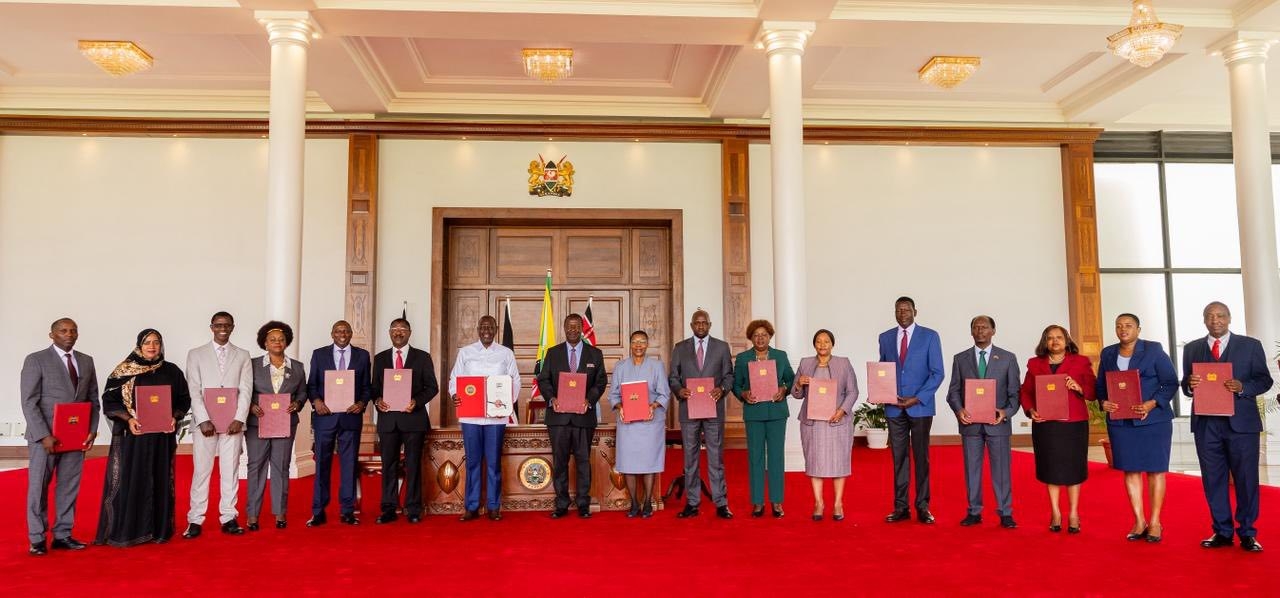The European Union Ambassador to Kenya Henriette Geiger has urged agricultural stakeholders to invest in climate-resilient crops to enhance food security.
She argued that a larger human population in the world is faced with a shortage of food due to the adverse impact of climate change.
Climate change is a phenomenon that has posed a serious threat to food security not only in Kenya but globally.
It is characterized by the worldwide rising of temperatures due to greenhouse gases that trap more heat in the atmosphere. Droughts become longer and more extreme around the world.
Tropical storms are also more severe due to warmer ocean and water temperatures.
Such unpredictable weather patterns interfere with agricultural production.
It is against the backdrop that Ambassador Geiger called on agricultural stakeholders to come up with the best strategy for addressing the adverse impact of climate change by investing in climate-resilient crops.
She urged Kenyans to embrace new farming methods as well.
“We know the adverse impact of climate change and its serious threat to food security across the globe. The best remedy is to invest in climate-resistant crops and embrace new farming methods,” Geiger said.
Speaking on Thursday after they toured the International Center of Insect Physiology and Ecology (ICPE) research centre in Mbita town in Suba North constituency, the diplomat called for the adoption of modern technology for pest control.
Together with Homa Bay Governor Gladys Wanga and ICIPE Director General Abdou Tenkouano, Ambassador Geiger noted that there are modern technologies of pest control which are cheap.
She mentioned the push-pull pest control method which she said farmers can apply without spending a lot of money.
The push–pull technology involves intercropping cereals with a repellent plant such as desmodium, which repels or deters stemborers (stalk borers) from the target food crop.
An attractant trap plant, for instance, Napier grass, is planted around the border of this intercrop, to attract and trap the pests.
As a result, the food crop is left protected from the pests.
“The Push-Pull technology does not require farmers to spend a lot of money to control pests and diseases in their farms. Such technology should be adopted to boost crop production,” she added.
Wanga said her administration is focusing on new technology in crop production to cushion residents from depending on rain-fed agriculture.
She argued that climate change had caused fluctuating rain patterns in the area. The situation causes a scarcity of rainfall.
She said Homa Bay is a county that depends on agriculture greatly hence the promotion of the new crop production technology.
“The unpredictable weather patterns make it hard to grow crops normally. We can no longer continue relying on rain-fed agriculture hence the importance of embracing smart agriculture,” Wanga said.
Homa Bay works within the County Integrated Development Plan in undertaking its agricultural activities to improve food production.
“The county government is working with other partners to provide farmers with resistant seeds to grow. It’s nowadays difficult to rely on rainfall alone,” the governor added.
Tenkouano urged other African countries to embrace what ICIPE is doing to enhance agricultural production.












